第70章 Chapter 24(4)
Cavor was continually making corrections in his previous accounts of the Selenites as fresh facts flowed upon him to modify his conclusions, and accordingly one gives the quotations that follow with a certain amount of reservation. They are quoted from the ninth, thirteenth, and sixteenth messages, and, altogether vague and fragmentary as they are, they probably give as complete a picture of the social life of this strange community as mankind can now hope to have for many generations.
"In the moon," says Cavor, "every citizen knows his place. He is born to that place, and the elaborate discipline of training and education and surgery he undergoes fits him at last so completely to it that he has neither ideas nor organs for any purpose beyond it. 'Why should he?'
Phi-oo would ask. If, for example, a Selenite is destined to be a mathematician, his teachers and trainers set out at once to that end. They check any incipient disposition to other pursuits, they encourage his mathematical bias with a perfect psychological skill. His brain grows, or at least the mathematical faculties of his brain grow, and the rest of him only so much as is necessary to sustain this essential part of him. At last, save for rest and food, his one delight lies in the exercise and display of his facility, his one interest in its application, his sole society with other specialists in his own line. His brain glows continually larger, at least so far as the portions engaging in mathematics are concerned; they bulge ever larger and seem to suck all life and vigour from the rest of his frame. His limbs shrivel, his heart and digestive organs diminish, his insect face is hidden under its bulging contours. His voice becomes a mere stridulation for the stating of formula; he seems deaf to all but properly enunciated problems. The faculty of laughter, save for the sudden discovery of some paradox, is lost to him; his deepest emotion is the evolution of a novel computation.
And so he attains his end.
"Or, again, a Selenite appointed to be a minder of mooncalves is from his earliest years induced to think and live mooncalf, to find his pleasure in mooncalf lore, his exercise in their tending and pursuit. He is trained to become wiry and active, his eye is indurated to the tight wrappings, the angular contours that constitute a 'smart mooncalfishness.' He takes at last no interest in the deeper part of the moon; he regards all Selenites not equally versed in mooncalves with indifference, derision, or hostility. His thoughts are of mooncalf pastures, and his dialect an accomplished mooncalf technique. So also he loves his work, and discharges in perfect happiness the duty that justifies his being. And so it is with all sorts and conditions of Selenites - each is a perfect unit in a world machine....
"These beings with big heads, on whom the intellectual labours fall, form a sort of aristocracy in this strange society, and at the head of them, quintessential of the moon, is that marvellous gigantic ganglion the Grand Lunar, into whose presence I am finally to come. The unlimited development of the minds of the intellectual class is rendered possible by the absence of any body skull in the lunar anatomy, that strange box of bone that clamps about the developing brain of man, imperiously insisting 'thus far and no farther' to all his possibilities. They fall into three main classes differing greatly in influence and respect. There are administrators, of whom Phi-oo is one, Selenites of considerable initiative and versatility, responsible each for a certain cubic content of the moon's bulk; the experts like the football-headed thinker, who are trained to perform certain special operations; and the erudite, who are the repositories of all knowledge. To the latter class belongs Tsi-puff, the first lunar professor of terrestrial languages. With regard to these latter, it is a curious little thing to note that the unlimited growth of the lunar brain has rendered unnecessary the invention of all those mechanical aids to brain work which have distinguished the career of man.
There are no books, no records of any sort, no libraries or inscriptions.
All knowledge is stored in distended brains much as the honey-ants of Texas store honey in their distended abdomens. The lunar Somerset House and the lunar British Museum Library are collections of living brains...
"The less specialised administrators, I note, do for the most part take a very lively interest in me whenever they encounter me. They will come out of the way and stare at me and ask questions to which Phi-oo will reply. I see them going hither and thither with a retinue of bearers, attendants, shouters, parachute-carriers, and so forth - queer groups to see. The experts for the most part ignore me completely, even as they ignore each other, or notice me only to begin a clamorous exhibition of their distinctive skill. The erudite for the most part are rapt in an impervious and apoplectic complacency, from which only a denial of their erudition can rouse them. Usually they are led about by little watchers and attendants, and often there are small and active-looking creatures, small females usually, that I am inclined to think are a sort of wife to them; but some of the profounder scholars are altogether too great for locomotion, and are carried from place to place in a sort of sedan tub, wabbling jellies of knowledge that enlist my respectful astonishment. I have just passed one in coming to this place where I am permitted to amuse myself with these electrical toys, a vast, shaven, shaky head, bald and thin-skinned, carried on his grotesque stretcher. In front and behind came his bearers, and curious, almost trumpet-faced, news disseminators shrieked his fame.